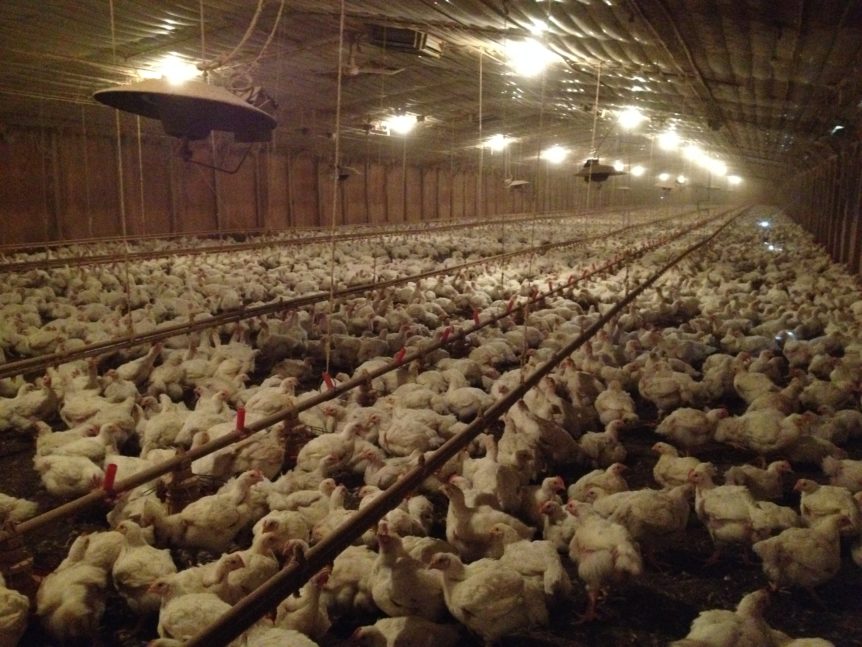Late last month, consumers filed a suit against multiple pork producers (including Smithfield, Hormel, and Tyson Foods) accusing them of colluding to drive up the cost of pork products. The class-action case alleges that these producers have been working together to artificially inflate the prices for years by “coordinating their output and limiting production.”
A day after the case was brought against the pork suppliers, food corporations like Kroger, Hy-Vee Inc., and Albertsons Companies Inc. filed a suit against a dozen chicken companies, including Tyson and Pilgrim’s, accusing them of sharing proprietary data to manipulate supply and inflate the cost of chicken.
These are just the latest cases in a string of lawsuits filed against animal agribusiness companies like Tyson and Smithfield. Earlier this year, the two largest U.S. food distributors sued Tyson, Perdue, Pilgrim’s, and Koch Foods accusing them of destroying eggs and killing broiler hens to boost prices while slowing production. That is the third lawsuit to raise these same issues in less than two years.
A common thread in these lawsuits has been Agri Stats, an agribusiness data analysis company that allowed for sharing of price and supply data among companies that allegedly enabled collusion.
While these accusations, if proven true, violate antitrust laws and consumers’ rights, animals are also unnecessarily suffering and being sent to slaughter simply because there are too many animals and too little demand.
In 2011, a class action lawsuit against a dairy industry trade group was filed by firm Hagens Berman — the same firm that brought the pork antitrust case last month. The lawsuit, representing millions of consumers, detailed how a trade group paid farmers to kill 500,000 young cows in order to artificially–and illegally–inflate dairy prices. Compassion Over Killing presented the initial research to the firm, and the case was settled for a whopping $52 million paid to the represented consumers.
These many cases of the meat, dairy, and egg industries allegedly driving up prices point towards a lack of demand for their products in the growing plant-based movement. As the plant-based market continues to soar, it isn’t surprising that corporations in control of animal industry are being called out on collusion.
These cases are still pending, but regardless of the outcome, it’s clear that these corporations are starting to lose consumers’ trust.
It’s easy to create nutritious and affordable meals without animal products! Check out TryVeg.com for recipes.

